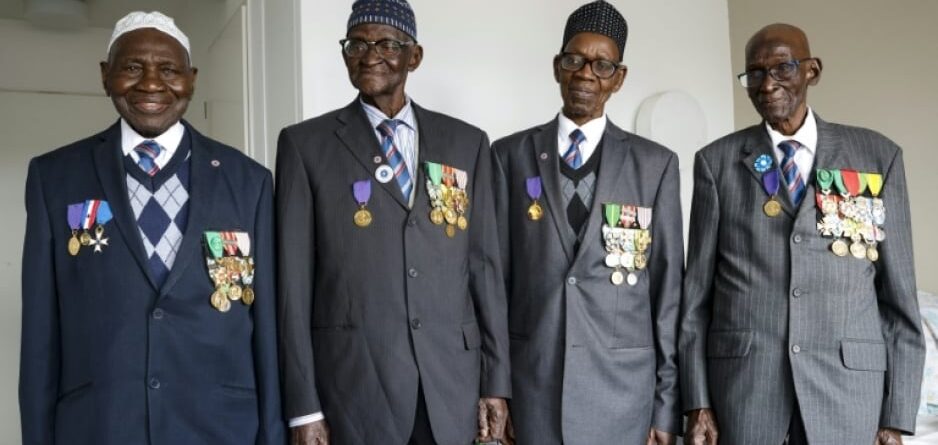Senegalese veterans to return home after French government u-turn on pensions
Eight veteran Senegalese riflemen will be finally returning home for good this Friday, after President Emmanuel Macron’s government in January lifted a six-month residency condition for their military pension.
For 95-year-old Yoro Diao, after nearly 20 years of living thousands of miles from his family, he is happy to leave his tiny studio in a suburb of Paris, to return to his family.
“This is a victory, a second victory after the war. We are allowed to go home while receiving our old-age benefits, we will live well there,” he said.
“It’s not at my age that I’m going to go off and marry a lot of women. What am I going to do with my benefits? I’m going to live well, eat, walk around the village. That’s heaven.”
The much-decorated soldier, who in 2017 was awarded France’s highest honour, the Legion d’Honneur, fought in both Indochina and Algeria.
“Firstly, I gave France my blood – even if I didn’t actually bleed – and my youth. My youth, the memory. I forget everything now. I forget everything. I’m old,” he said.
Hundreds of thousands of African soldiers fought for France in the two world wars and against independence movements in Indochina and Algeria
But until this year, surviving veterans among the so-called “Senegalese Infantrymen” had to live in France for half the year or lose their pension.
In January, the French state dropped the condition, saying they could return home for good and continue receiving their monthly allowance of €950 euros.
It said it would also pay for the flight and move of any veterans wishing to leave.
But for most, it is too late. Only a few dozen of the former riflemen are still alive and some of them are too frail to return home.
Aïssata Seck, President of the Association for the Memory of Senegalese Riflemen said when she first met Diao and his comrades 10 years ago, many lived alone in tiny hostel rooms sharing a communal bathroom.
She says they were effectively stuck far from home because of the six-month rule, yet unable to bring their families to France on their meagre income.
“It’s difficult to live in a hostel, in seven square metres, with no sanitary facilities, doing their shopping alone, without their family. I’ve questioned this because I’m thinking, they fought for France, yet they live in terrible conditions,” she said.
Their pensions were increased to adjust for inflation for the first time in 2006, after almost five decades.
“I was shocked that all these old men who had contributed to our freedom couldn’t even become French,” said Seck.
Only after years of lobbying were they finally granted French nationality in 2017 by the then president, Francois Hollande.
Another victory for these old men, who will return home on Friday where they can finally live in peace, surrounded by their families.
Read more @AfricaNews
193 views










